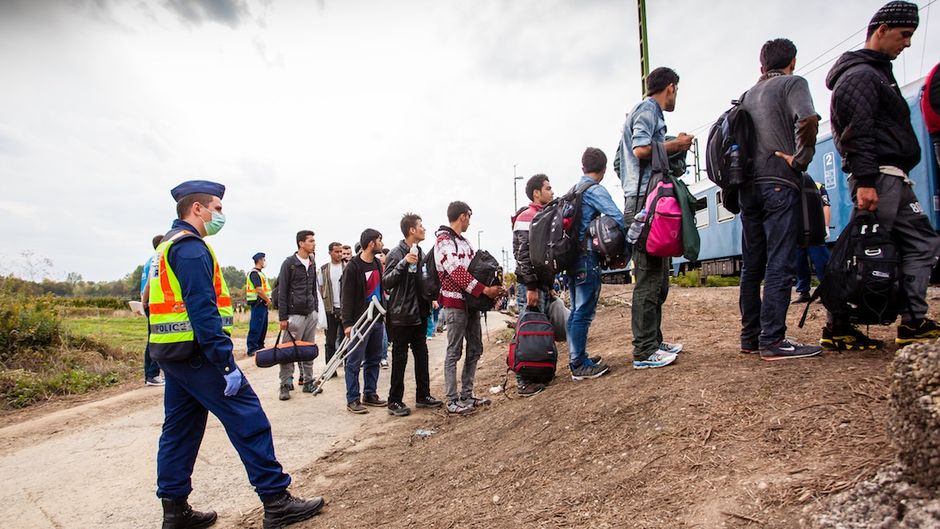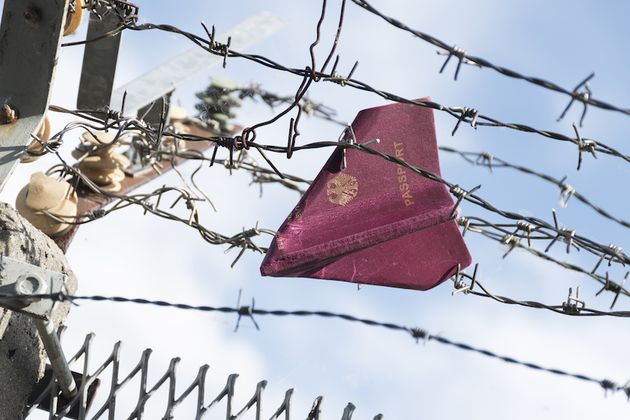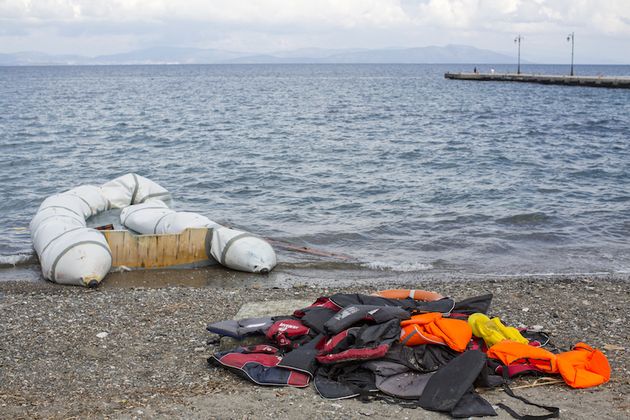The EU migration pact, a historic agreement or a ‘reactionary response’?
While the political actors involved welcome the agreement, evangelical organisations take a critical look at the details of the pact.
Protestante Digital · BRUSSELS · 12 JANUARY 2024 · 15:35 CET

Europe has struggled to manage migratory movements for over a decade and that has been perceived by citizens as one of its biggest problems.
On 20 December, the Council of the European Union and the European Parliament announced a reform of the asylum and migration system of the European Union.
The Pact on Migration and Asylum consists of five pillars which will apply to all member states. “What we have achieved is historic”, said Margaritis Schinas, the Vice President of the European Commission. “For the first time after decades of failed attempts, Europe now has a political framework for managing immigration and asylum. We finally deprive the demagogues and the populists in Europe of their argument that we are not able to sort out our migration problem”.
German Foreign Affairs Minister, Annalena Baerbock, said the agreement responds to an “urgent and long-needed” issue, while Fernando Grande-Marlaska, the Interior Minister of Spain, one of the countries that has received thousands of migrants in recent months, pointed out that “the EU remains committed to tackling the root causes of migration, working together with countries of origin and transit and addressing the scourge of migrant smuggling”.
Evangelical organisations
In the evangelical sphere, there are many organisations working with migrants and refugees in Europe, and some of them have analysed the agreement.
Whitney Gerdes, a board member of the Refugee Highway Partnership (RHP), which unites dozens of evangelical groups on the continent, acknowledges that “the EU legislation on migration is critical because the movement of people seeking safety is not a new phenomenon nor will it cease to be a need for millions”.
But she also believes that “the EU’s response to migration and the increased movement of people has been historically quite reactionary, which placed an unfair burden on the Southern EU countries”.
“The fact that it took all these years to reach any kind of agreement points to the divisiveness of this issue among the constituents, the unshared burden of immigration across member states, and the complicated nature of policy making in immigration”, she adds.
In Italy, Giovanna Genova, an evangelical who works assisting migrants and homeless people in the area of Milan's central station, told Spanish news website Protestante Digital that “regulating the entry of migrants is good” because that, she says, will ensure that “those who really need help get in”.
“It's a question of order”, she says.

For Ángel Manuel Hernández, pastor of the Misión Cristiana Moderna (Modern Christian Mission) church on the Canary Island of Fuerteventura, a Christian community heavily involved in primary care for migrants arriving to the island's coast, “the agreement is very good”.
There are three demands he and others have been making for some time and which they hope will be met with the new regulation.
“The first is that there is finally a common migration policy throughout the Union. The second is that the countries affected are going to give the same migratory responses. The third is the principle of mandatory solidarity, in other words, that the countries not affected will be obliged to show solidarity in the reception of migrants, and if they fail to do so, they will be sanctioned”.
According to Hernández, “the agreement emphasises work at the place of origin, and that is extremely important to us. God willing, agreements with the countries of origin will definitely be closed in order to extend Frontex's scope of action. That would be a vital solution”.
Hernández laments that “there is nos response in the agreement for unaccompanied minors”.
“The state should be responsible for the distribution of minors, but it is not. Everything continues to depend on the affected regions. These minors should be cared for as if they were our children, they should be schooled and accompanied in their daily lives. Currently, in the Canary Islands, we have over 3000”, Hernández underlines.
Tighter control
The various regulations of the new EU agreement stand out for reinforcing the control of the arrival of migrants, with measures such as the closure of temporary border reception centres, which are usually used to return more quickly people who arrive without the required documentation or permits.
Whitney Gerdes points out that “the tighter controls that have been proposed, i.e. separation of those who are deemed less likely to receive asylum into detention centres, violate the right for a fair asylum process”.
“There are also no clear exemptions for vulnerable populations, and this puts unaccompanied minors and those with disabilities at greater risk for exploitation and abuse”, she says.
For Hernández, the issue of asylum is one of the “bittersweet notes” of the agreement, because “people have the right to flee their countries if their lives are at risk”, since “this was the agreement established in the Geneva Convention after the Second World War, so that it is important to do more in-depth investigation into asylum policies”.
“We don't agree that the asylum seeker should remain in immigration detention in border territories until their asylum situation is resolved, when we all know that the asylum process takes a very long time. You cannot detain a person as if they were a criminal trying to save their life”, he adds.

Quota distribution as “mandatory solidarity”
The Pact speaks of established quotas for a better distribution among member countries of the people arriving on European Union soil.
Angela Merkel already proposed this in Germany, and made headlines for taking in one million Syrian migrants. The new rules now speak of a “mandatory solidarity”, something that raises concerns and scepticism among some.
Gerdes thinks that “the quotas are still on the table because there is a hope that the EU will act as a unified body and share the responsibility of offering a safe place for those seeking asylum”.
Furthermore, “in the new pact there is the option for countries to just pay a fee to not have to take their quota of new arrivals, which will erode any hope that the migrants would be received proportionally across the member states”.
Hernández supports the distribution in quotas and defends a reception model in which people continue to be displaced after arriving in European territory. “As long as there is fluidity as there is now, everything is fine, because in the Canary Islands we only have 7,000 accommodation places”.
“The church has the opportunity to step in where governments fall short”
Of the over 446 million people living in the European Union, 23.8 million are not recognised as EU citizens (5.3%) and a further 38 million were born outside the EU (8.5%).
For Gerdes, these Eurostat data remind are important to remeber that “the EU only has 1.5% of the share of worldwide refugees compared to its population”.
“With the political and public opinion increasingly anti-immigrant, the church needs to stay informed about the worldwide realities and our faithful response as members most importantly of the family of God”, she stresses.
According to this member of the Refugee Highway Partnership, the agreement shows that “the church has the opportunity to step in where governments fall short”.
“Our mandate as Christians has always been to welcome the stranger or 'irregular migrant' as the EU terminology coldly states”, Gerdes says. That is why “this agreement represents the need for churches and Christian organisations to continue their work as once again the solutions offered by the EU are not sufficient for the individuals represented in the millions seeking safety worldwide”.
One more year
Learn all about our #OneMoreYearEF campaign here (English).
Published in: Evangelical Focus - europe - The EU migration pact, a historic agreement or a ‘reactionary response’?
